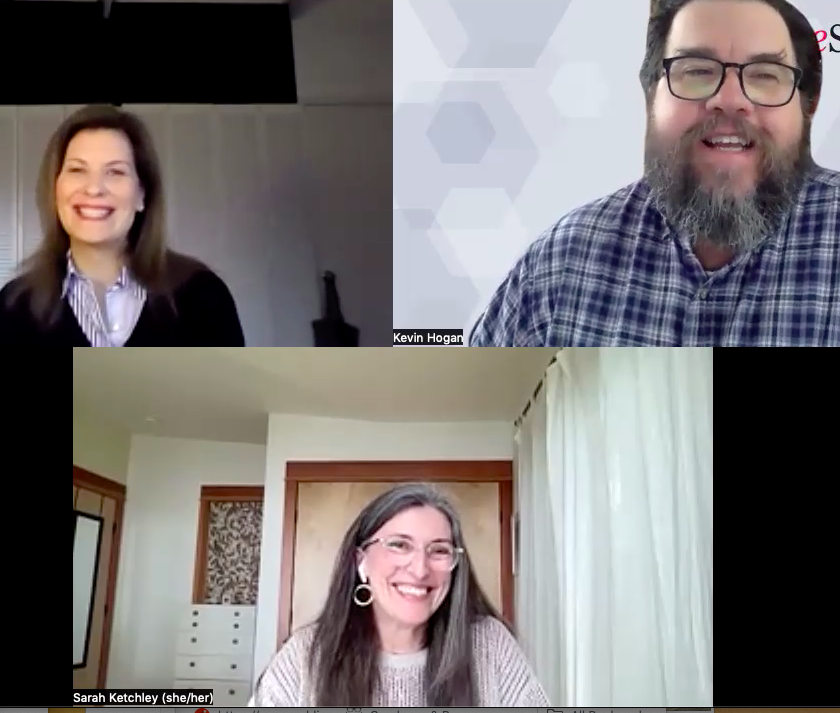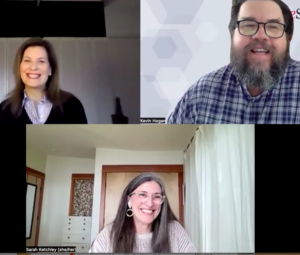Pharaohs and pyramids may not be the first images that spring to mind when discussing the cutting edge of digitization and data analysis, but after listening to this chat, they won’t be the last. In this conversation with Jess Ludwig, Director of Product Management-Digital Humanities at Gale and Egyptologist Sarah Ketchley, we talk about their work in the field of digital humanities, particularly focusing on the application of data analytics in higher education, specifically in the humanities. Sarah details her use of data analytics to analyze Nile travel journals and make them accessible to a wider audience. She describes how she applies computational methodologies to her research and teaching, including text encoding and sentiment analysis. Jess shares the development of the Gale Digital Scholar Lab and its impact on digital humanities scholarship. They also touch upon the role of AI in their work and the future opportunities and challenges in the field. Have a listen:

Takeaways:
- Transformation of Humanities Education: The integration of data analytics and computational methodologies is transforming humanities education. Traditional subjects like history and literature are being reimagined through the lens of data, enabling new insights and approaches to teaching and research.
- Accessibility and Collaboration: Digital tools like the Gale Digital Scholar Lab are making archival materials more accessible and facilitating collaboration among researchers and students. These tools empower users to explore and analyze vast amounts of data, uncovering patterns and insights that may not be apparent through traditional methods.
- Critical Engagement with AI: While AI offers promising opportunities for automation and analysis, it’s essential to approach it with a critical lens. Understanding the algorithms and biases inherent in AI systems is crucial for interpreting results accurately and ensuring objective analysis of historical data sets.
- Future Directions: The future of digital humanities lies in continued innovation, including the integration of programming languages like Python and the development of collaborative tools for group-based projects. As technology evolves, there will be ongoing opportunities to enhance digital literacy skills and foster interdisciplinary collaboration in the humanities.
More information about Sarah from her site:
An Egyptologist and Digital Humanist, Sarah Ketchley brings life to stories of the past which are hidden in the archives. She is particularly interested in the role lesser-known figures played in early Egyptian archaeology during the so-called ‘Golden Age’ at the end of the 19th and early 20th centuries. Emma B. Andrews is a case in point: she bore witness to the discovery of over twenty tombs in Egypt’s Valley of the Kings, recording her keen-eyed observations of turn-of-the-century archaeology, culture and society in her journals. Her writing is an invaluable yet underutilized resource for historians of the period.
Ketchley has a Ph.D. in Egyptian Art History from the University of Birmingham, U.K. She is now a faculty member in the Department of Middle Eastern Languages and Cultures at the University of Washington and teaches in the Humanities and Philosophy Department at the University of Maryland Global Campus. She also works for Gale, a Cengage Company as their resident Senior Digital Humanities Specialist. Her research and pedagogy focus on using digital tools to analyze and visualize humanities data, using archival material related to Near Eastern travel and archaeology as the basis for her work.
More information about Gale Research:
The Gale Research Showcase supports digital humanities research by providing openly available examples of digital humanities projects completed with the Gale Digital Scholar Lab. Here, visitors can browse projects across a range of topics and learn more about discoveries made using analysis tools in the Lab. Gale invites new submissions from early career researchers and will update this space with additional projects on a regular basis.
http://www.gale.com/dh-research
Gale partners with institutions and organizations around the world to award fellowships in digital humanities research. In 2022, Gale partnered with the American Society for Eighteenth-Century Studies (ASECS) and the Committee on LGBT History (CLGBTH) to award fellowships to 10 researchers. Each fellow was granted six months’ access to Gale Digital Scholar Lab (the Lab) and a relevant Gale Primary Sources archive: Eighteenth Century Collections Online (ECCO) for Gale-ASECS fellows and Archives of Sexuality and Gender for Gale-CLGBTH fellows.
https://www.gale.com/primary-sources/digital-humanities/fellowships
- Exploring Data Analytics in Higher Education Humanities - May 9, 2024
- Big Deals: New Higher Ed Product News from Element451, MachineTrader, and MathGPT - April 29, 2024
- How to Navigate the Wild West of Microcredentials - March 25, 2024

